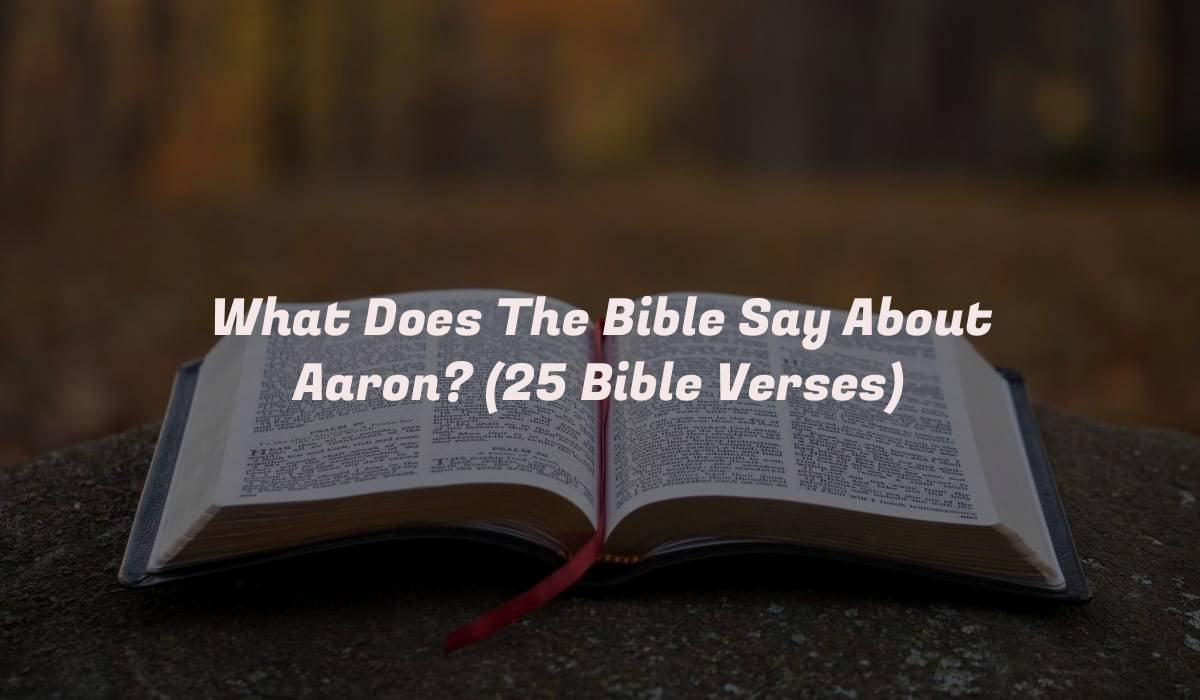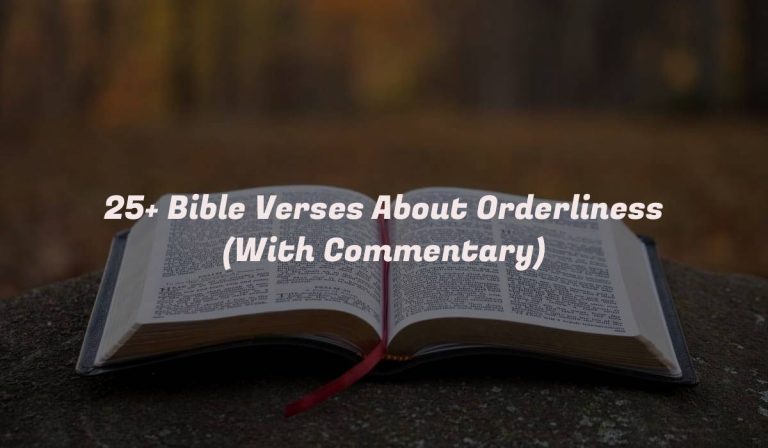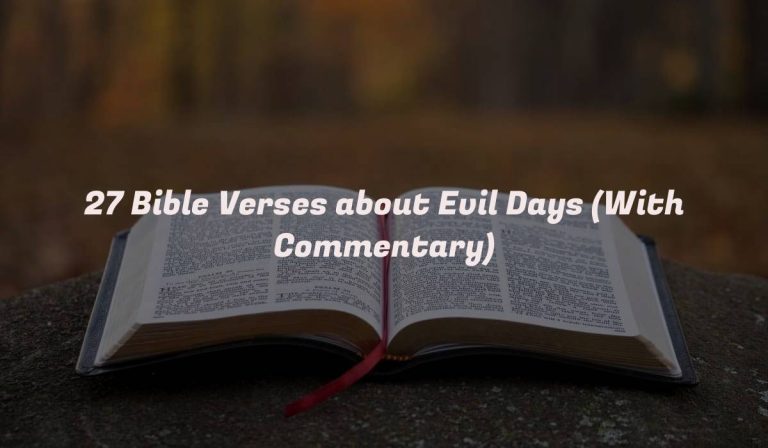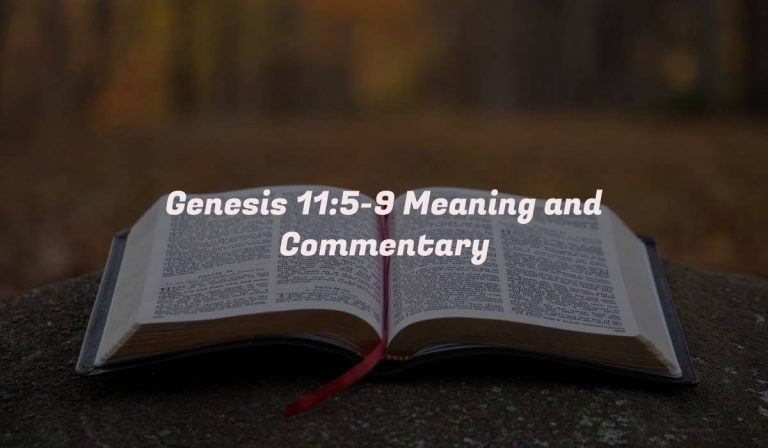What Does The Bible Say About Aaron? (25 Bible Verses)

Aaron, a central figure in the Bible, is often overshadowed by his brother Moses. But what does the Bible reveal about this enigmatic character? From his role as the first high priest of Israel to his moments of triumph and failure, delving into Aaron’s story can illuminate key lessons about leadership, faith, and human imperfection. Join me as we uncover the significance of Aaron’s journey and its relevance to our lives today.
What Does The Bible Say About Aaron
Exodus 4:14
“Then the anger of the LORD was kindled against Moses and he said, ‘Is there not Aaron, your brother, the Levite? I know that he can speak well. Behold, he is coming out to meet you, and when he sees you, he will be glad in his heart.”
This verse shows how God appointed Aaron to be Moses’ spokesperson and companion during their mission to bring the Israelites out of Egypt. Aaron’s ability to speak well and his joy at seeing Moses clearly demonstrated his suitability for the role.
Exodus 4:27
“The LORD said to Aaron, ‘Go into the wilderness to meet Moses.’ So he went and met him at the mountain of God and kissed him.”
Here, God instructs Aaron to go into the wilderness to meet Moses. This encounter at Mount Sinai marked a significant milestone in their relationship and their joint mission from God. The act of Aaron kissing Moses shows their deep bond as brothers and partners in fulfilling God’s plan.
Exodus 6:20
“Amram married his father’s sister Jochebed, and she bore him Aaron and Moses. Amram lived 137 years.”
This verse provides genealogical information, confirming that Aaron and Moses were siblings born to Amram and his wife Jochebed. It highlights Aaron’s familial background and the important role he played in the history of Israel as Moses’ brother.
Exodus 7:1
“And the LORD said to Moses, ‘See, I have made you like God to Pharaoh, and your brother Aaron shall be your prophet.”
God appointed Aaron as Moses’ prophet, emphasizing the role Aaron would play in relaying God’s messages to Pharaoh. This verse illustrates how Aaron’s relationship with God was essential in fulfilling their divine mission.
Exodus 7:7
“Moses was eighty years old and Aaron eighty-three when they spoke to Pharaoh.”
These ages reveal that Aaron was three years older than Moses, emphasizing his seniority and his shared responsibility in leading the Israelites out of Egypt. It underscores that age is not a limitation when God calls someone to fulfill His purpose.
Exodus 8:5
“Then the LORD said to Moses, ‘Tell Aaron, ‘Stretch out your hand with your staff over the rivers, over the canals and over the pools, and make frogs come up on the land of Egypt.”’”
This verse illustrates how God directed Moses to instruct Aaron to use his staff to bring the plague of frogs upon Egypt. It highlights Aaron’s participation in the miraculous signs and wonders that God performed through Moses and Aaron.
Exodus 8:16
“Then the LORD said to Moses, ‘Tell Aaron, ‘Stretch out your staff and strike the dust of the earth, so that it may become gnats in all the land of Egypt.”’”
Here, God again commands Moses to tell Aaron to perform a sign using his staff. Aaron’s obedience and involvement in this act demonstrate his faith and trust in God’s instructions.
Exodus 8:17
“They did so; Aaron stretched out his hand with his staff and struck the dust of the earth, and there were gnats on man and beast. All the dust of the earth became gnats in all the land of Egypt.”
This verse showcases Aaron’s obedience to God’s command. He faithfully followed through with the instructions to strike the dust, resulting in the manifestation of the plague of gnats. It highlights Aaron’s role as an agent of God’s power and judgment upon Egypt.
Exodus 8:26
“But Moses said, ‘It would not be right to do so, for the offerings we shall sacrifice to the LORD our God are an abomination to the Egyptians. If we sacrifice offerings abominable to the Egyptians before their eyes, will they not stone us?”
This verse portrays Moses cautioning against an action that could provoke the Egyptians and endanger their lives. It shows Aaron’s role as an advisor and partner to Moses, demonstrating their shared responsibility in making decisions that would both honor God and protect the Israelites.
Exodus 9:22
“Then the LORD said to Moses, ‘Stretch out your hand toward heaven so that there may be hail in all the land of Egypt, on man and beast and every plant of the field, in the land of Egypt.’”‘
Once more, God instructs Moses to employ Aaron’s involvement in executing a divine sign. The partnership between Moses and Aaron demonstrates their unity and their submission to God’s direction.
Exodus 9:23
“When Moses stretched out his staff toward heaven, the LORD sent thunder and hail, and fire ran down to the earth. And the LORD rained hail upon the land of Egypt.”
This verse describes how Moses, with Aaron’s support, acted upon God’s command and witnessed the tremendous manifestation of hail as part of the plagues unleashed upon Egypt. Aaron’s active presence alongside Moses reinforces the idea of their shared responsibility and divine mission.
Exodus 12:1-2
“The LORD said to Moses and Aaron in the land of Egypt, ‘This month shall be for you the beginning of months. It shall be the first month of the year for you.”
In these verses, God addresses both Moses and Aaron, highlighting their joint leadership role. They receive instructions regarding the establishment of the Passover, a crucial event in the Israelite calendar. Aaron’s involvement affirms that he played a significant role in implementing and observing this significant feast.
Exodus 16:9
“Then Moses said to Aaron, ‘Say to the whole congregation of the people of Israel, ‘Come near before the LORD, for he has heard your grumbling.”’”
Here, Aaron is tasked with addressing the Israelites on behalf of Moses. He acts as a channel of communication, relaying God’s message of comfort and assurance to the grumbling people. Aaron’s role as a mediator between God and the people is demonstrated in this verse.
Exodus 28:1
“Then bring near to you Aaron your brother, and his sons with him, from among the people of Israel, to serve me as priests—Aaron and Aaron’s sons, Nadab and Abihu, Eleazar and Ithamar.”
In this verse, God appoints Aaron and his descendants to serve as priests, carrying out sacred duties within the tabernacle. This indicates Aaron’s unique position and responsibility in leading the Israelites’ worship, offering sacrifices, and interceding on their behalf before God.
Exodus 28:3
“You shall speak to all the skillful, whom I have filled with a spirit of skill, that they make Aaron’s garments to consecrate him for my priesthood.”
God instructs Moses to ensure that skillful artisans create the garments for Aaron’s consecration as a priest. These garments would set Aaron apart, symbolizing his sacred role and the authority vested in him by God. This verse illustrates God’s attention to detail in every aspect of Aaron’s priestly service.
Exodus 32:2
“So Aaron said to them, ‘Take off the rings of gold that are in the ears of your wives, your sons, and your daughters, and bring them to me.’”‘
When the Israelites grew impatient during Moses’ absence on Mount Sinai, they demanded that Aaron make them gods to worship. This verse reveals Aaron’s lapse in judgment as he complied, instructing the people to bring their gold to fashion a golden calf. It serves as a cautionary example of Aaron’s fallibility and highlights the consequences of misplaced faith.
Exodus 32:24
“So I said to them, ‘Let any who have gold take it off.’ So they gave it to me, and I threw it into the fire, and out came this calf.”
Here, Aaron attempts to justify his actions to Moses, taking responsibility for his participation in creating the golden calf. This verse reveals Aaron’s weakness in succumbing to the people’s pressure, which led him to compromise his obedience and loyalty to God.
Exodus 32:35
“Then the LORD sent a plague on the people because they made the calf, the one that Aaron made.”
As a consequence of Aaron’s involvement in creating the golden calf, God sends a plague upon the Israelites. This verse underscores the serious repercussions of Aaron’s actions and emphasizes the importance of remaining faithful and obedient to God’s commandments.
Numbers 16:2
“and they rose up before Moses, with a number of the people of Israel, 250 chiefs of the congregation, chosen from the assembly, well-known men.”
This verse refers to a rebellion led by Korah, Dathan, Abiram, and On against Moses and Aaron’s leadership. It reveals the challenges that Aaron, alongside Moses, faced throughout their journey as they encountered resistance and questioning from the Israelites.
Numbers 16:5
“and he said to Korah and all his company, ‘In the morning the LORD will show who is his, and who is holy, and will bring him near to him. The one whom he chooses he will bring near to him.”
In response to the rebellion, Moses addresses Korah and his followers, foretelling God’s judgment and the mark of His chosen ones. This verse underscores Aaron’s role as a holy and chosen servant of God, appointed to carry out God’s will with reverence and obedience.
Numbers 16:35
“And fire came out from the LORD and consumed the 250 men offering the incense.”
This verse describes how God’s judgment manifested as fire consumed the rebels who had unlawfully offered incense. It serves as a reminder of God’s jealously and His appointed leaders’ role in interceding on behalf of the people. Aaron’s position as the high priest further demonstrates his unique connection with God’s presence.
Numbers 17:10
“And the LORD said to Moses, ‘Put back the staff of Aaron before the testimony, to be kept as a sign for the rebels, that you may make an end of their grumblings against me, lest they die.’”‘
Following the rebellion, God instructed Moses to place Aaron’s staff before the Ark of the Covenant as a sign to quell the grumbling among the Israelites. This verse illustrates how God confirmed Aaron’s position and silenced the opposition through a miraculous sign.
Numbers 20:24
“Aaron shall be gathered to his people, for he shall not enter the land that I have given to the people of Israel because you rebelled against my command at the waters of Meribah.”
Here, God informs Moses and Aaron that Aaron will not enter the Promised Land due to their disobedience at the Waters of Meribah. This verse shows the consequence of Aaron’s lapse in faith, teaching the importance of wholehearted trust and consistent obedience to God’s commandments.
Numbers 33:39
“And Aaron was 123 years old when he died on Mount Hor.”
These verses mark the end of Aaron’s life as he dies on Mount Hor. It serves as a reminder of the transience of human life and the fulfillment of God’s word regarding Aaron’s exclusion from the Promised Land. Despite his shortcomings, Aaron’s legacy as a faithful servant of God endures.






